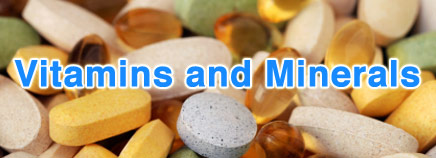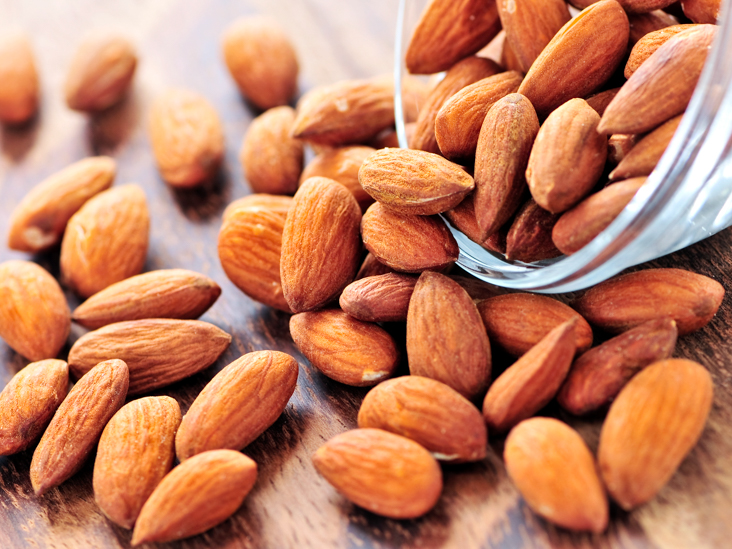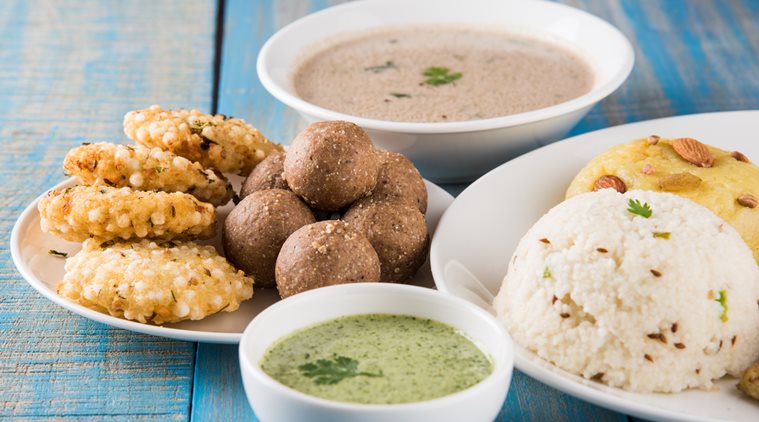Talk about nutrition and carbs, proteins and fats come to the mind immediately. However, these are the macronutrients and are not the only group of nutrients. More important are the micronutrients, comprising of a group of very important substances known as minerals and vitamins. Read on to know the most important vitamins and minerals that your body needs and the role they play.
Vitamin A: Essential for healthy eyes, general growth and development and glowing skin. These are found in carrots, sweet potatoes and oranges.
Vitamin B: These are essential for iron absorption, improved immunity and production of energy. Whole grains and unprocessed foods and vegetables like lentils, potatoes, bananas, yeast and molasses are good sources of these vitamins.
Vitamin C: Required for iron absorption, blood clotting, elastic skin and antioxidant function. Found in good amounts in citrus fruits, guava, kiwi, grapefruits, strawberries, etc.
Vitamin D: Extremely important for bone development, these are found in eggs, mushrooms and fish.
Vitamin E: It improves the blood circulation and reduces free radicals, which is essential for cancer protection. Almonds, nuts, tomatoes and sunflower seeds are good sources of vitamin E.
Vitamin K: It is very essential for the process of blood coagulation, these are found in spinach, broccoli, kale and other green vegetables.
Iron: Very essential ingredient for blood formation and muscle building, clams, oysters, soybeans, lentils and spinach are great sources of iron.
Calcium: Most important ingredient, as it helps in the formation of teeth and bones, dairy products, tofu and cheese are very good sources.
Zinc: A key ingredient essential for overall growth, immunity and fertility, spinach, beans, oysters and dark chocolate carry a good amount of Zinc.
Folic acid: Essential for iron absorption, cell regeneration, and in pregnancy for healthy development of the baby. Green leafy vegetables, asparagus, peas, seeds, nuts, lentils, beets, corn, etc. are good sources.
Trace minerals like iodine, manganese, copper, fluoride, selenium and chromium are also essential but in very small amounts. While these are not the only essential vitamins and minerals, these are the most important ones. The quantities of these substances required on a daily basis are very small, but critical for functions listed above. In addition, some of them also help in releasing free radicals, which provides protection against cancer and chronic inflammation. This helps prevent chronic health conditions like heart disease, diabetes and stroke.
An important point to consider is while there are multiple supplements available in the market today to make sure you get all of these nutrients, try to eat a wholesome meal and get these through natural sources to the maximum extent possible. The natural foods are the best source, and supplements should be used only when these cannot be obtained naturally.
It is a well-known fact that natural and unsalted almond are a tasty snack with a lot of nutrients and health benefits packed within. Loaded with a lot of minerals, they are considered the healthiest nuts. Munching on a handful of nutrient rich almonds every day can promote a healthy heart and inhibit unwanted weight gain while helping you to fight diseases such as Alzheimer’s and high blood sugar. Here are some of the benefits of eating almonds every day-
Get access to the much-needed nutrition: If you eat around 20 almonds every day, you would be able to incorporate different essential nutrients in the daily diet. These little nuts contain copious amounts of calcium, vitamin E, potassium, and magnesium. Almonds are an excellent source of fiber and protein while being low in sugar content. Of all the tree nuts you can think of, almonds rank first when it comes to containing fiber, niacin, riboflavin, calcium, and B vitamins by weight. There are 160 calories in 23 almonds, and it is a good source of healthy unsaturated fats.
Prevent unwanted weight gain: All nuts including almonds are beneficial for maintaining a healthy weight. The protein, fat and fiber content of almonds can keep you full and feel satiated for a long time which means you will not have the urge to overeat. Magnesium in these nuts can regulate blood sugar levels which are helpful for controlling food cravings. Since they are a rich source of calories, it is recommended to limit yourself to one ounce of almonds daily.
Provide you with energy: If you feel lethargic and tired most of the time, then consuming some soaked almonds in the morning would aid in replenishing the lost nutrients of the body. This is because copper, manganese, and riboflavin present in almonds are known to boost metabolism.
Protect your heart health: According to the reports of FDA, around 1.5 ounces of almonds every day can reduce the risk of developing heart disease. Many of the nutrients present in almonds help in contributing to heart health. Magnesium in almonds can inhibit hypertension and heart attacks. As the belly fat and LDL levels are reduced with regular consumption of almonds, the risk factors for cardiovascular disease are reduced significantly.
Keep cancer at bay: Soaked almonds have the power to shield you from the risk of developing colon cancer. Almonds contain high levels of fiber which helps the foods to move through the digestive tract easily so that they don’t build up in the colon. This is one of the most significant benefits of having almonds every day.
Thus, make it a practice to have a few almonds every day and enjoy the benefits it offers.
Nuts were rediculed till a few years back by the diet-conscious population because they are high in fats. However, now they are being embraced by the very same people because of their heart healthy, anti diabetes and weight loss properties.
Recent research has transformed mindsets. Extensive studies published in reputed journals prove that nuts not only promote heart health and fight diabetes, but they also aid in weight-loss. Nuts are nutritional nuggets containing phytochemicals and unsaturated fats, which are a type of fat that promotes heart-health. They also contain high levels of Vitamin E, folic acid, magnesium, copper and antioxidants.
Promoters of weight loss
Nuts are some of the most filling food items available in your kitchen cabinets. The high fibre and protein in nuts makes you feel full faster. This means you will never binge eat on nuts, you will not reach for the pizza in the fridge and therefore, not pile on the kilos. Because of this, nuts are a dieter’s dream.
The American Journal of Clinical Nutrition says that dieters stick with their diet plan longer if nuts are included in it. In fact they don’t feel they are on a diet, if they’re allowed to eat nuts while dieting. Other prestigious studies suggest that women who eat nuts tend to be slimmer than women who don’t. Nuts like peanuts can increase your metabolic rate. So you burn up more calories and lose weight.
Nuts also stabilize your blood sugar as they are low glycemic index foods. This means they are digested more slowly and release sugar gradually into the bloodstream, as compared to food items such as rice that is a high glycemic index food. Low glycemic index food products also provide long-term energy and decrease cravings.
Nuts contain calories, but these calories come along with awesome health benefits. Since, one ounce of nuts contains 160- 200 calories, it’s important to remember not to binge on other fatty foods like ghee along with nuts. Balance is important while having these nutrient-dense foods. If you don’t do this, you will end up putting on weight instead of losing it.
Apart from portion control, nutritionists suggest that you do the following:
Eat nuts along with other food items, like mix and match nuts with fruits, sprinkle nuts on soups, cheese or breads and eat them with salads.
Eat small portions and avoid eating handful of nuts at a go.
The nuts that are really good are walnuts, almonds, Macadamia nuts, pecans and cashews. So try to include more of these. Also, if you are allergic to peanuts, stay away from them.
Avoid sweet or flavoured varieties of nuts. These contain extra doses of salt and sugar and can end up making you fat.
Detox and Cleanse are the two buzzing words in the health community for some time now. Navratri diet is essentially one of the native processes to cleanse our body internally. We can utilize our hands and soap to clear our skin, but for internal clearance, diet plans like Navratri are being used since ancient times.
It is a very simple and transparent process our body follows. Our body needs energy all the times. So, if we stop or minimize the intake of food in any form, the body’s internal metabolic system starts searching for for stored energy. Fats are the godown of energy, and hence, the body starts utilizing them in running itself. In this manner, we can gradually lose all the fat content within a span of 9 days of Navratri festival.
Navratri fasting – Doing it right
Proper fasting techniques help us to set us back on track when it comes to good health. But unhealthy practices such as consuming deeply fried or sugary food during the festival period was not an ancient process but which somehow developed along the way and hence, should be avoided. Going salt-free and including fruits and vegetables in our diet help our bodies pass this time with ease. A Navratri diet plan was actually made to detoxify our body.
Incorporating Variety of Grains: Amaranth, Chestnuts, and Samak are equivalent to cereal and are rich in proteins and carbohydrates. Recently scientists have found that these pseudo-cereals have high nutritional content as compared to wheat. They are also the best sources of minerals and vitamins and free from gluten. The practice of including such foods with us in the past which might have been lost as we evolved and the festive occasion is a good opportunity to bring about the change.
Similarly, khichdi made from Kuttu also serves the need of a balanced diet with proper carbohydrate minerals and other vitamins. It's effortless to cook which helps to make time for celebration as well. Chapati made up of Kuttu is also a great option for those who prefer parathas and puris.
The potato which is also a rich source of carbohydrate in a baked form can suit the need of Navaratri diet plans. Sabudana, either as Khichdi or mixed with milk not only enhances the taste buds but also provides quality nutrition. It's better to have these alternate grains at regular intervals instead of an extended period of fast.
Drinking plenty of fluids: Plenty of fluids like water, buttermilk, fruit juice should be taken. Lime diluted with warm water helps to detoxify your body at faster levels. A variety of such foods should be eaten to satisfy the taste buds and providing proper nutrition to the body.
Hence, it would be good to incorporate such foods into the regular diet, even after the Navratri celebrations are over. It not only helps in minimizing weight but also to maintain it. This diet promotes digestion, improves energy, prevents diseases and fosters a feeling of lightness and well-being throughout the year and entire life. Celebrate the Navratri in a healthy way, not compromising the pomp and grandeur.
A very low body mass index can be due to many causes including genetic, developmental and hormonal disorders and other issues with absorbing nutrients in the body. A low body mass index may also be owing to a high metabolism rate. Here are a few healthy ways to gain weight according to different requirements:
Know your calorie needs
Calculate your resting metabolic rate with the formula - RMR = 10* weight (kg) + 6.25* height (cm) - 5* age (yr) + x [For men; x=5, for women; x = -161] Your BMR tells you how much minimum calories you will burn if you rested an entire day. Account for your activity by using your RMR as BMR (Base metabolic rate) and calculate your daily calorie needs by the following formulae:
BMR * 1.2 - If you are sedentary
BMR * 1.375 - For light exercise
BMR * 1.55 - Moderate activity
BMR * 1.725 - High activity
BMR * 1.9 - Intense activity
Diet to follow
Gradually increase your calorie intake
Eat healthy and timely
Have a balanced diet with heavy foods like - starchy vegetables, dense fruits, added oils and creamy soups
Have foods rich in protein, avoid watery fruits and veggies
Avoid trans-fats
Do not binge, pace yourself through your diet regime
Have dietary supplements and protein shakes
Build muscle to increase body weight
Include weight training in your daily regime
Compensate for extra calorie lost in training
Do not over do it, rest is equally important in building muscle
#Things to remember
Stop eating junk food, eat healthily
Hydrate yourself well
Rapid weight gain may cause stretch marks
Be careful when choosing fatty foods as
overindulging in them can lead to heart diseases and type 2 diabetes
Overeating may cause bloating, stomach aches and cramps











